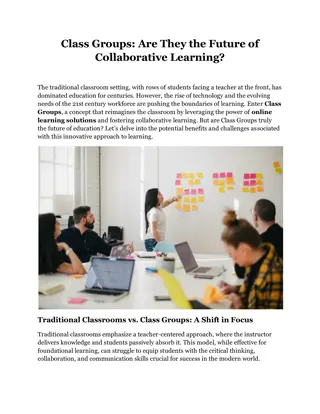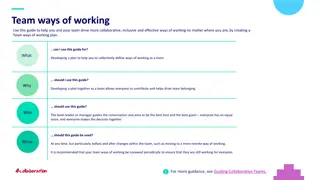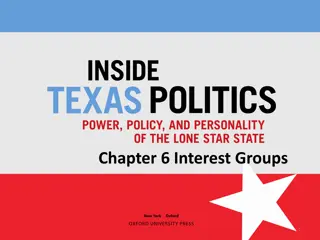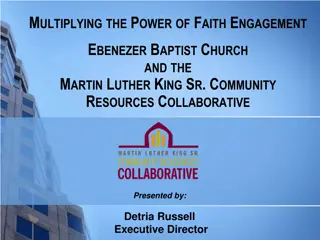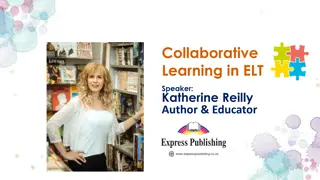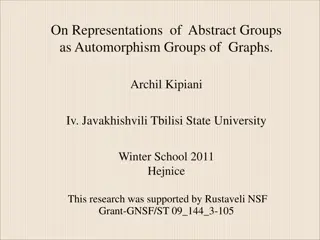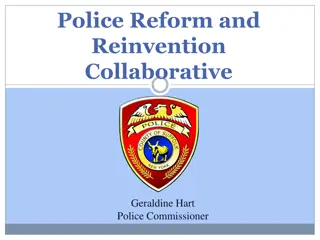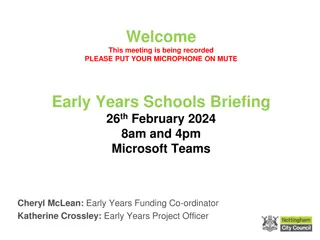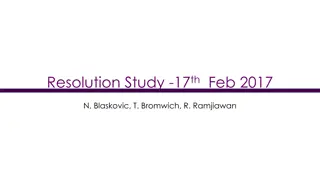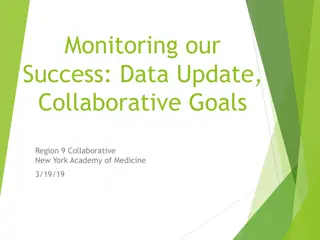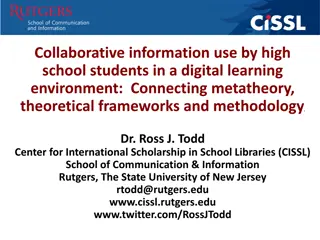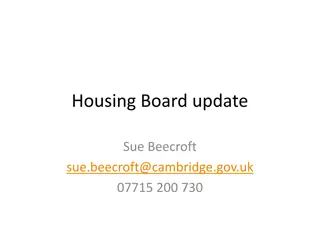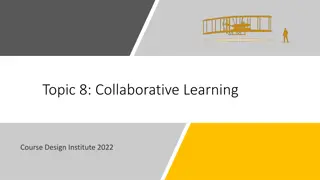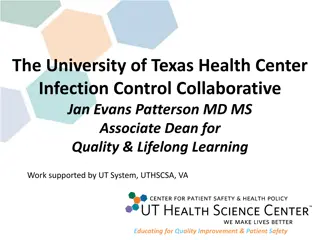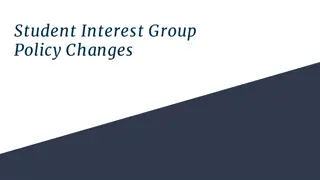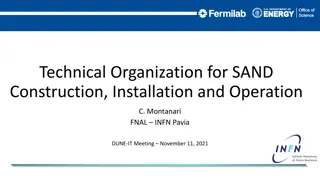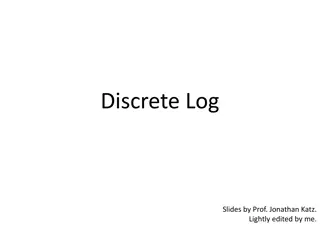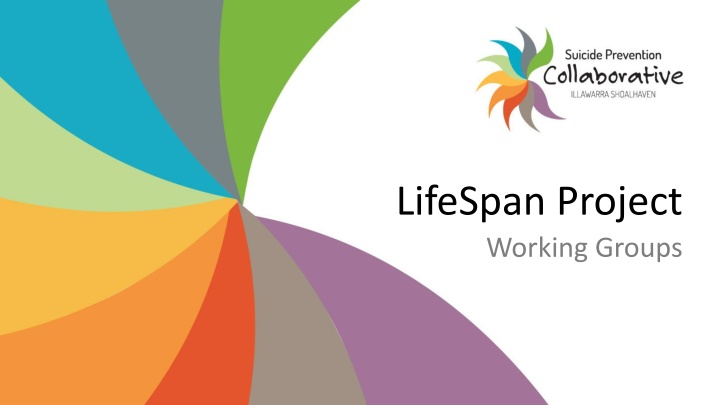
Structuring Support for the LifeSpan Project Working Groups
Learn about the structured approach of the Black Dog Institute's LifeSpan team in supporting implementation through cascading team structures, organized work streams, and detailed working groups. Explore how individuals with varied skills and lived experiences contribute to developing practical plans for suicide prevention strategies.
Download Presentation

Please find below an Image/Link to download the presentation.
The content on the website is provided AS IS for your information and personal use only. It may not be sold, licensed, or shared on other websites without obtaining consent from the author. If you encounter any issues during the download, it is possible that the publisher has removed the file from their server.
You are allowed to download the files provided on this website for personal or commercial use, subject to the condition that they are used lawfully. All files are the property of their respective owners.
The content on the website is provided AS IS for your information and personal use only. It may not be sold, licensed, or shared on other websites without obtaining consent from the author.
E N D
Presentation Transcript
LifeSpan Project Working Groups
Cascading Team Structure The below figure shows how the Black Dog Institute s LifeSpan team will be structured to support implementation Those who deliver change, e.g. health staff, gatekeepers, school staff, emergency workers, etc. On the Ground Local SP Collaborative members Working groups Implementation Team (LIT) Black Dog Institute, CRESP & LifeSpan staff Implementation experts (CEI) Data experts (AIHW) LifeSpan trial site representatives Central Implementation Team (CIT)
Work Streams To help engage key experts, clarify planning, and manage workloads, the 9 LifeSpan strategies will be grouped into 5 work streams Strategies grouped according to common target audiences LifeSpan staff (at the Black Dog Institute) will be structured to align with these work streams Key documents developed by the Black Dog Institute (e.g. outlining what each strategy will involve) will be based on these work streams
Work Streams 1: Health interventions strategies 1, 2, 3, 4 2: Community interventions strategies 5, 7, 8 3: School interventions strategy 6 4: Data driven suicide prevention suicide audit, service atlas, strategy 9 5: Indigenous suicide prevention applies across all strategies
Working Groups SP Collaborative established Working Groups aligned with these work streams Working Groups to develop detailed and practical plans relevant to each of the relevant strategies i.e. the Black Dog Institute will help to define what each strategy involves, the local Working Groups define the how Each Working Group to have a Lead who is responsible for coordinating and facilitating meetings Working Groups may include people who do not attend the regular monthly meeting, but have specific skills relevant to the Working Group We are wanting people with lived experience of suicide to be involved in each of the Working Groups. They will be supported to ensure their involvement is a positive experience. Those contributing to the Working Groups outside of their paid employment role will be paid for their participation. SP Collaborative staff to attend all Working Group meetings to ensure plans complement each other
Work Stream Working Group Members Working Groups Judith Simons (One Door MH) Yvonne McKenna (Hearing Voices Network) John Turner (ISPIR, LE) Helen Backhouse (Flourish) Tim Heffernan (ISLHD, LE) Lyndall Fowler (West Street) Linda Livingstone (COORDINARE) * Adam McRae (GPH) * Lynn Langhorn (ISLHD) Kylie Hanigan (LE) Grahame Gould (Lifeline) Julie Carter (ISLHD) Lorna Moxham (UOW) Ann Frankham (LE) Susan McMurdo (LE) Police Ambulance 1: Health interventions Carrie Lumby (Hearing Voices Network) * Clare Leslie (Lifeline) * Armando Reviglio (WCC) Emily Delovska (LE) Gordon Bradbery (WCC) Kelly Parish (ARAFMI) Eleanor Ashford (LE) John Casey (ACON) Toni Garretty (ISLHD) Linda Livingstone (COORDINARE) Clemantina Velasco (headspace Wollongong) Kristine Laird (COORDINARE) Nick Guggisberg (Kiama Council) Tim Heffernan (ISLHD, LE) Sandra Bolack (ISPAN) Susan McMurdo (LE) SSPAN 2: Community interventions Emily Delovska (LE) * Eleanor Ashford (LE) * Tim Heffernan (ISLHD, LE) * Heather McCarron (TAFE) Yvonne McKenna (Hearing Voices Network) Kathryn Baudinette (headspace) Leanne Woodley (AIS) Kylie Hanigan (LE) Lynne Harris (Department of Education) Cynthia McCammon (Catholic Education) 3: School interventions Grahame Gould (Lifeline) * Linda Livingstone (COORDINARE) Debra Murphy (RDA Illawarra) Wollongong City Council Shoalhaven Council Shellharbour City Council Kiama Council 4: Data driven suicide prevention Glenn Williams (MIND the GaP) Helen Backhouse (Flourish) Tim Heffernan (ISLHD, LE) Clare Lesley (Lifeline) Ann Frankham (LE) Michelle Dickson (Waminda) South Coast AMS Illawarra AMS 5: Aboriginal suicide prevention * Working Group Lead
First steps Keep in mind: Sustainability Evaluation Evidence-based Prior to first meeting: Receive contact list Arrange time & place for meeting (doodle poll) Distribute any relevant pre-reading documents Agenda for first meetings: Confirm goal of Working Group, with orientation to relevant strategies Ensure you have the right people at the table, acknowledging that not everyone will engage in the same way Clarify the what of each relevant strategy, with agreement to put additional activities to the side of this process (for now) Establish processes for progressing towards detailed & practical plans
Feedback loop WGs will keep records of meetings in the form of key action items & discussion points (no need for full minutes) These will be posted on the Collaborative s website WG Leads will feedback to the monthly SP Collaborative meeting Membership updates Current focus of WG discussions Requests for input from broader Collaborative Anticipated challenges of note Recommendations for general Communications Strategy Documented plans can also be shared with broader Collaborative for review (at certain landmarks)

